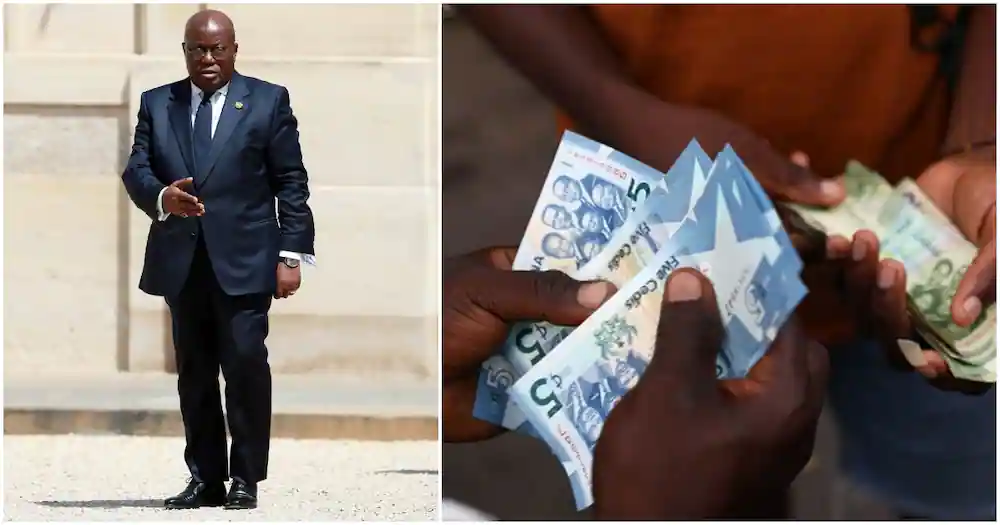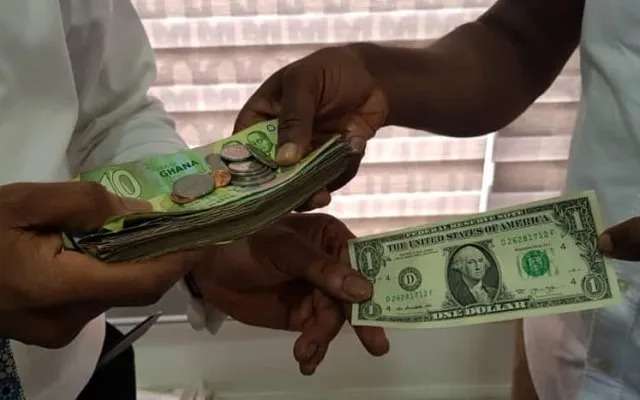Ghanaian investors, just as many other global investors while trying to adapt to the current global crisis, there is another problem lurking around the corner – a rebounding dollar, the new source of headache for investors aside the recent volatility in the global financial market
The dollar has risen nearly 4% from its recent lows and stands near a seven-week high against a basket of other major currencies including the Ghanaian cedi, driven by bets the Federal Reserve will need to raise rates higher than many investors had previously forecast to cool inflation.
The US currency remains some 8% below the twenty-year high it attained last year. Yet its rebound, along with a surge in Treasury yields, has already complicated the outlook for a range of trades that prospered as the dollar tumbled in the latter half of 2022.
In Ghana, the strength of the dollar, together with other factors, is causing the cedi to depreciate rapidly and thereby, affecting businesses which rely on importation of their raw materials with the American greenback.
A stronger dollar tends to tighten global financial conditions while diminishing appetite for risk-taking and weakening global trade. It also makes it more difficult for countries like Ghana that borrows in the U.S. currency to service its debt – a problem often acutely felt by emerging market economies.

The inability of Ghana to service its debt led to the country defaulting. Ghana is the latest country which has defaulted on debt and sought a debt restructuring since the COVID-19 pandemic began, and food and energy prices shooting up since last year 2022.
Impacts of the Sovereign Default
Two of the major impacts of the sovereign debt default on the Ghanaian economy are rising inflation and unemployment. However, sovereign debt default also affects the interest rates, domestic stocks, and exchange rates.
With sovereign debt default, countries tend to borrow at higher interest rates, which in turn results in domestic banks lending at higher interest rates. In Ghana, the interest rate averages more than 40%. This puts a negative impact on the trade and exports of the country. Furthermore, with less or no trust amongst the borrowers in the government, Ghanaians are trying to withdraw their money from banks and this has the tendency to worsen the economic crisis.
Another impact of the sovereign default is foreign portfolio investors. Foreign portfolio investors try to sell off their local assets in order to exit the defaulting country leading to plummeting exchange rates in the international market. This further impacts the export and import within the country.
On the domestic market, defaulting on sovereign debt leads to the wipe-out of the market capitalization of major firms within the country.
Moreover, a stronger dollar also makes crude oil, gold and other dollar-denominated commodities more expensive to foreign buyers. Part of the 2% year-to-date decline in Brent crude can be traced to the dollar’s rebound.
For the U.S., dollar strength makes exports less competitive while weighing on the bottom lines of multinational companies by making it more expensive for them to convert foreign earnings into their own currency.
Nonetheless, emerging market currency’s weakness like that of the cedi can be a great time to step in and build positions in high-quality companies in the country.
Experts also believe that an expected slowdown in global growth and souring risk appetite will send investors flocking to the dollar, a popular destination during uncertain times, and push the currency back to its highs later this year.

Admittedly though, external factors have a hand in the depreciation of the cedi and the current meltdown of the Ghanaian economy; most of the blames must be laid at the doorstep of decision makers. Excessive borrowing and overspending by this government are the cardinal sins responsible for the current state of affairs.
READ ALSO: We Are In A Crisis- Dr. Duffuor






















